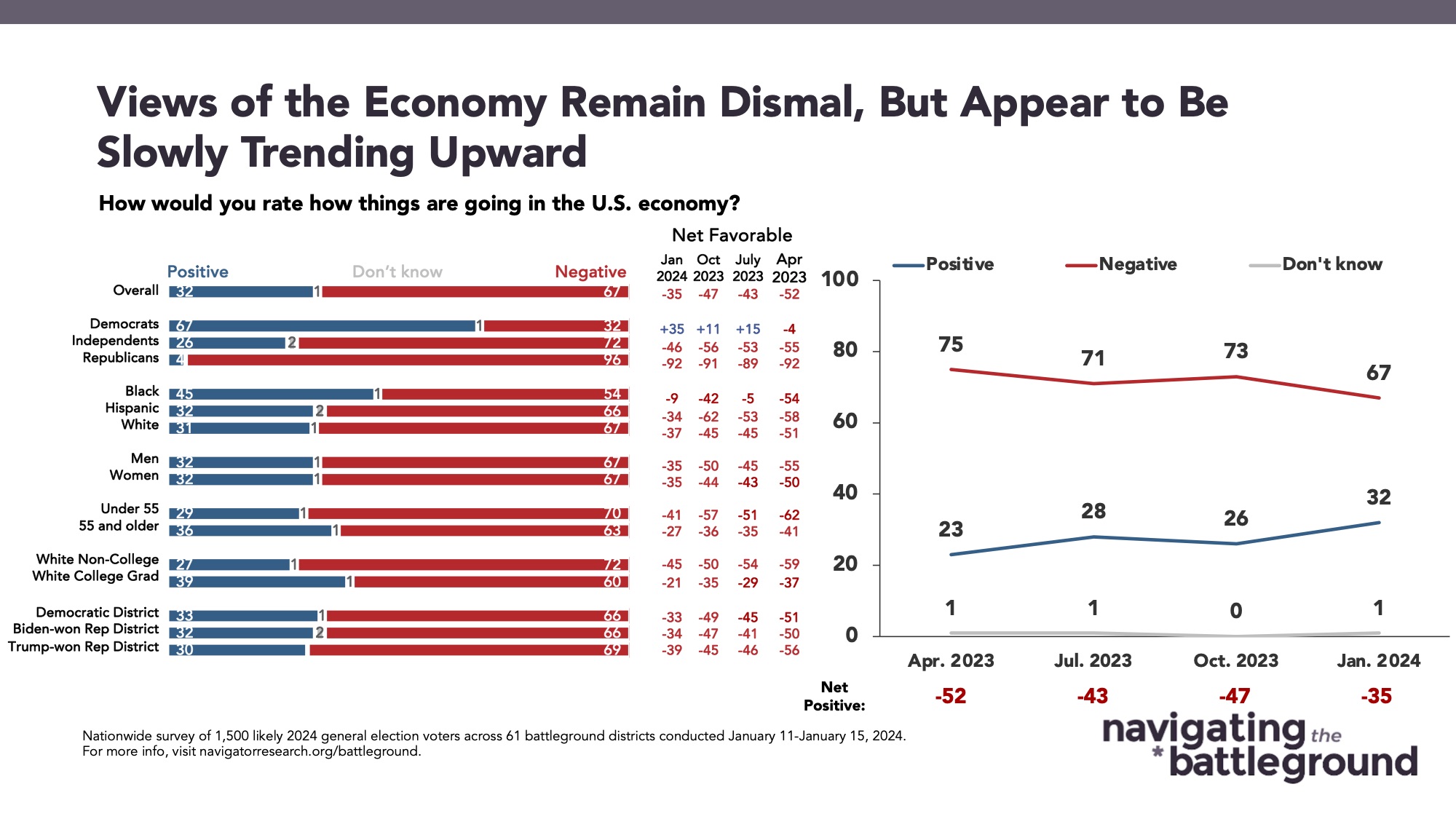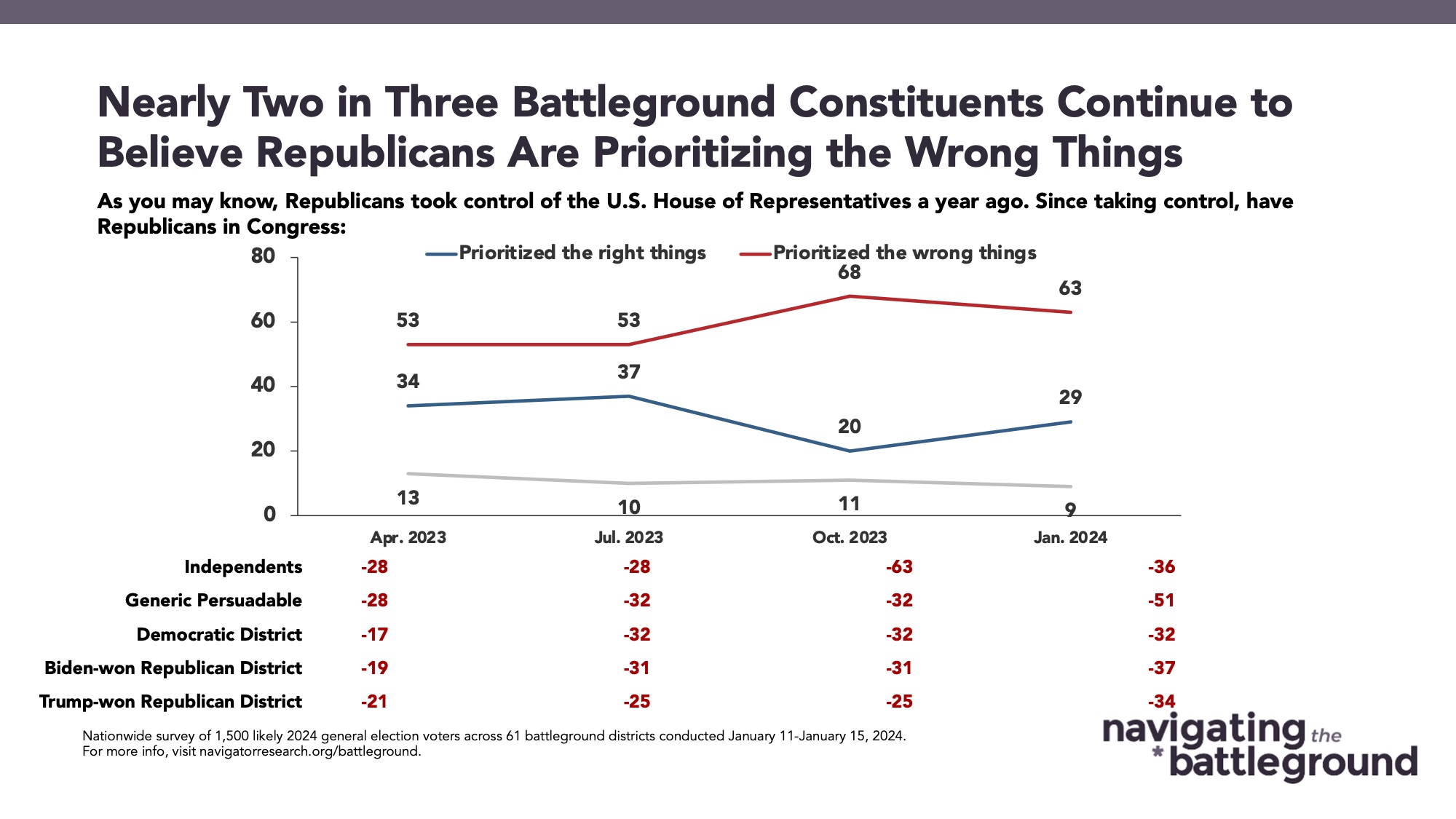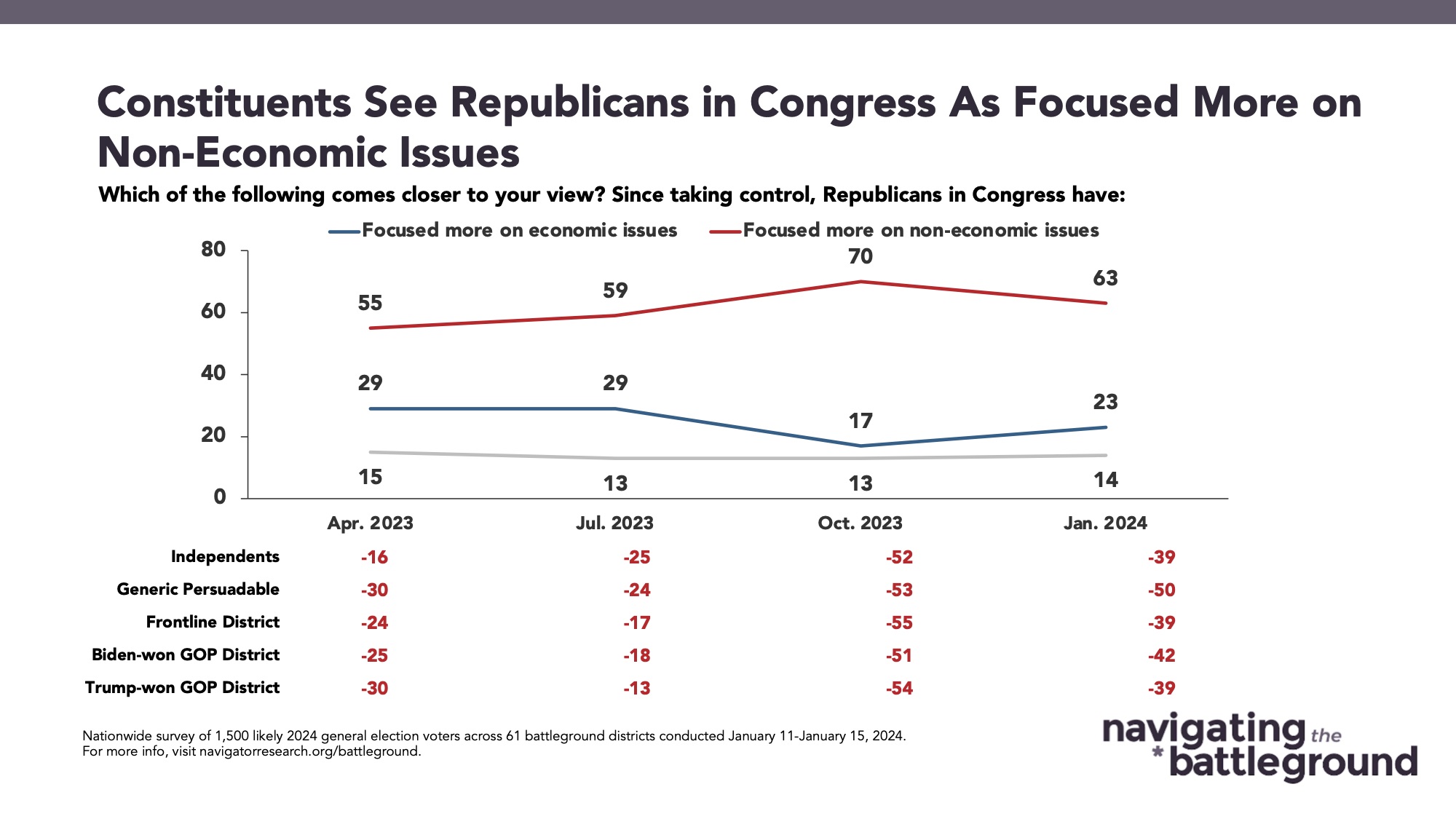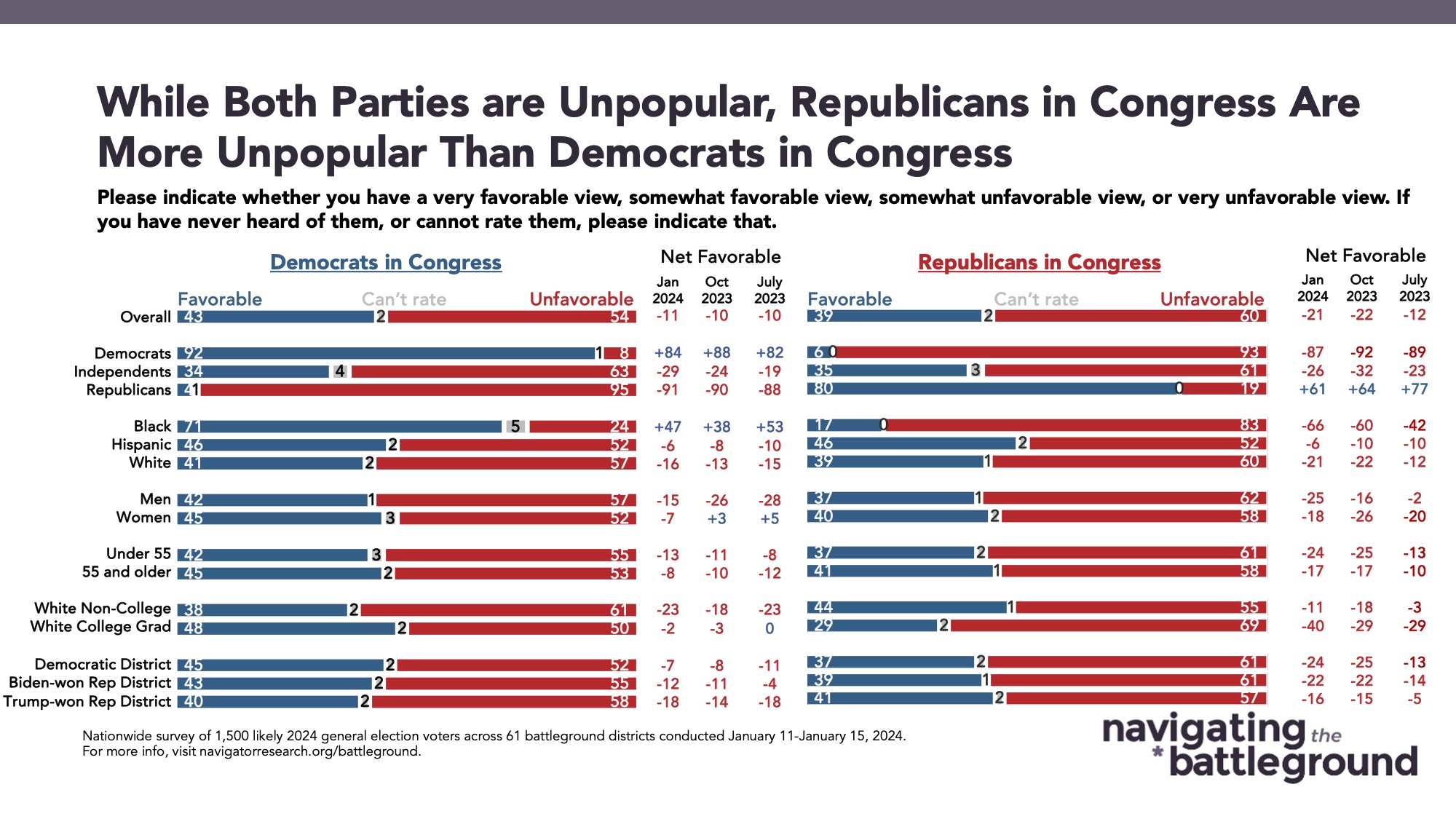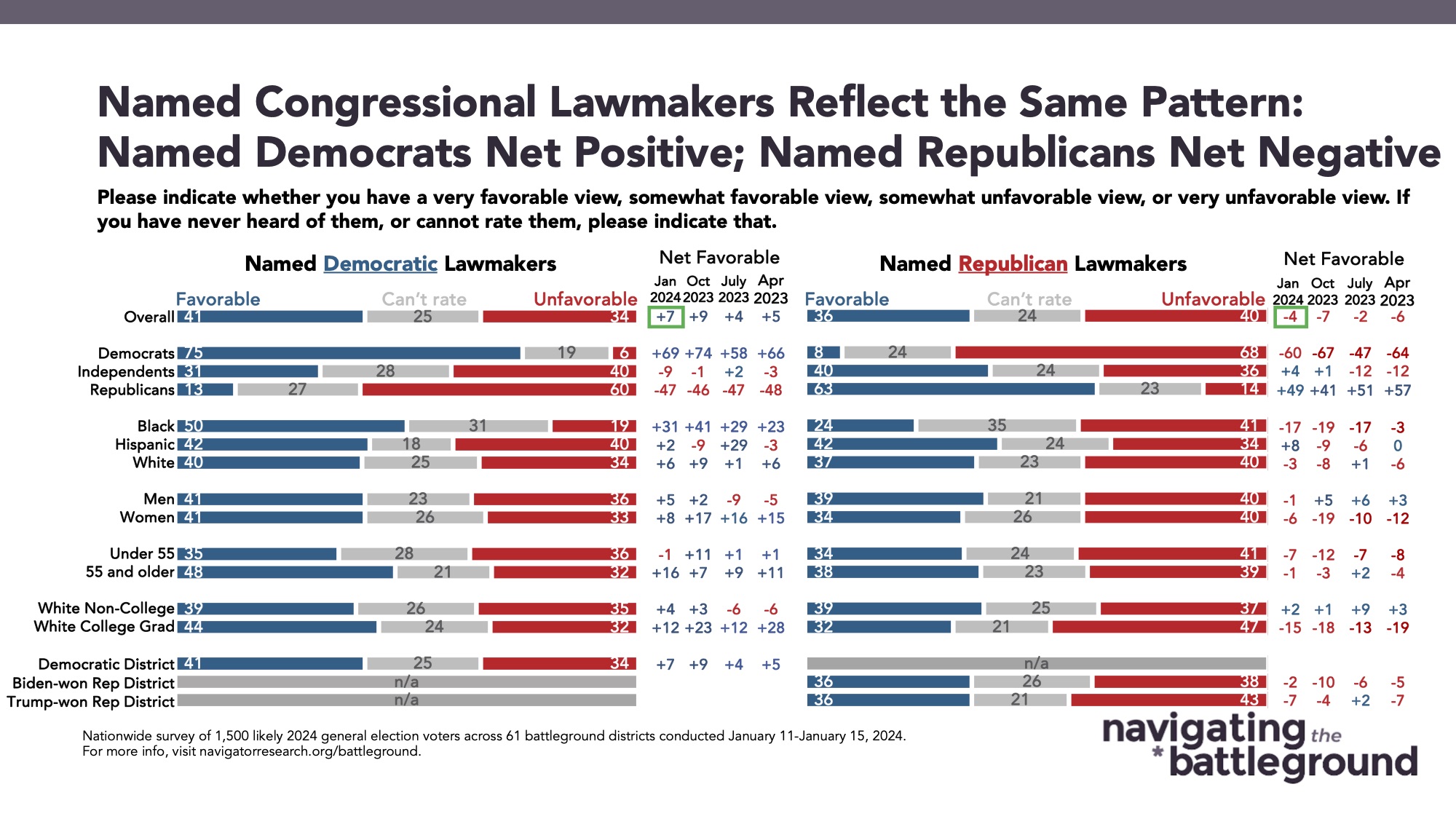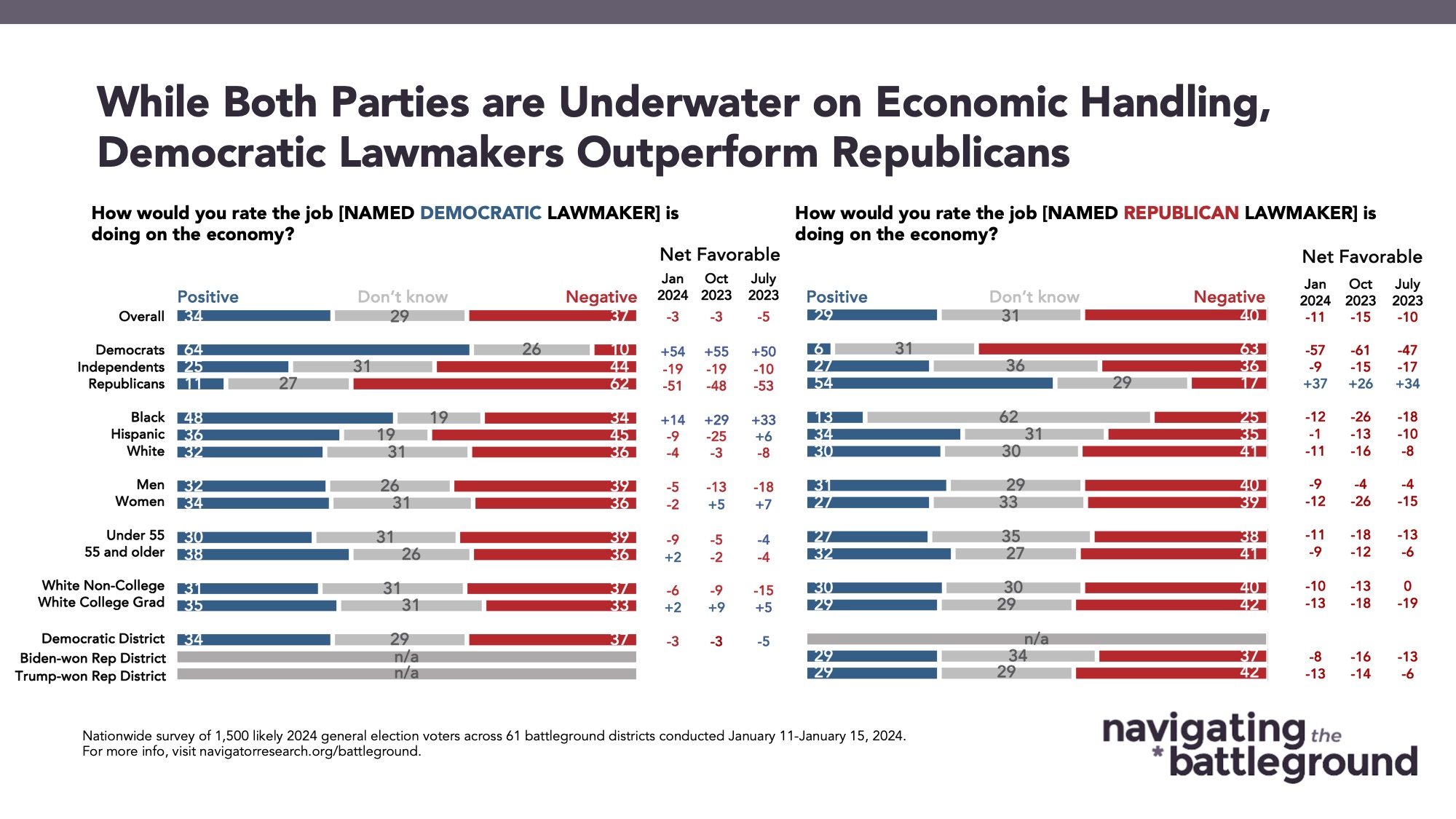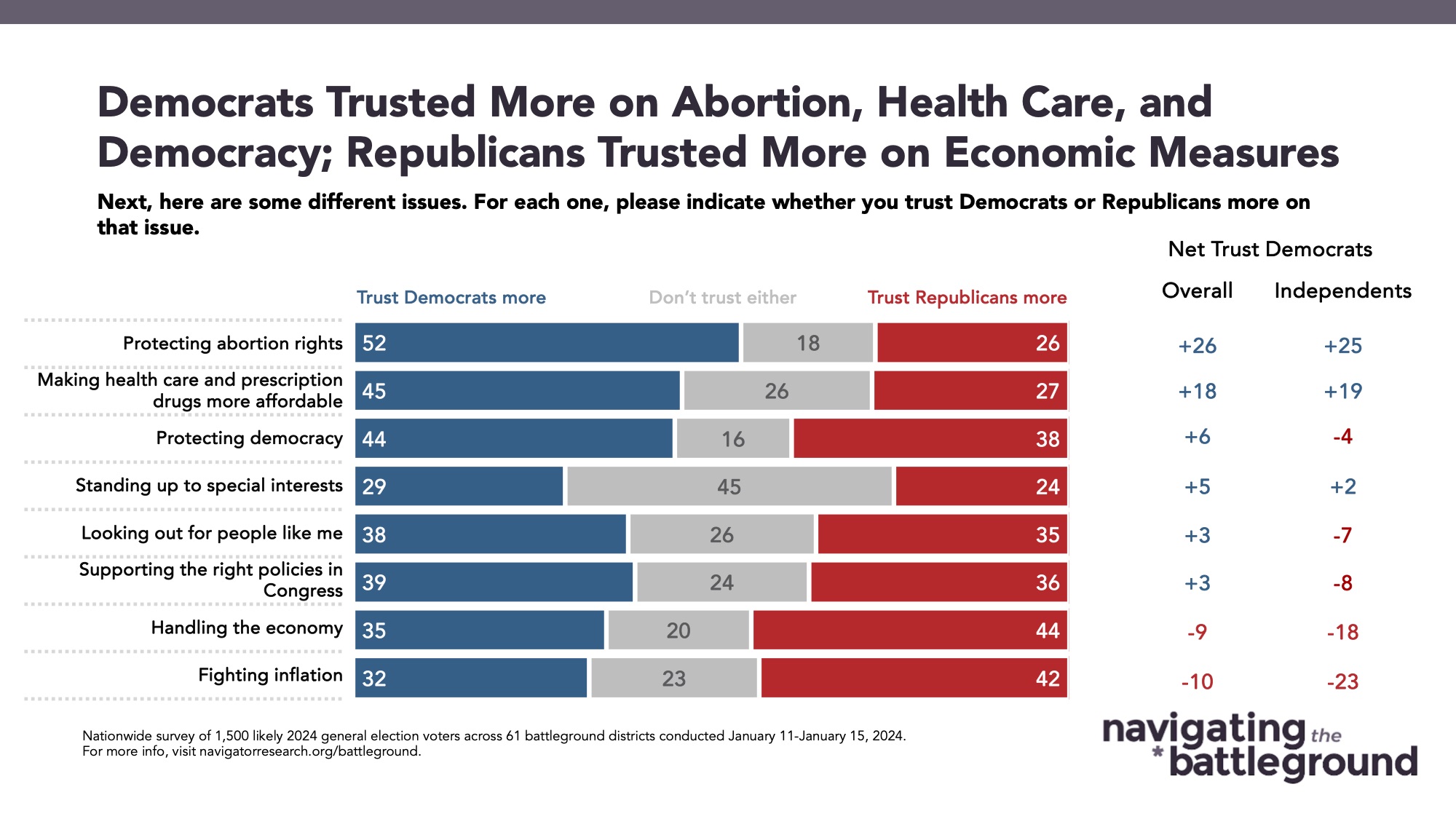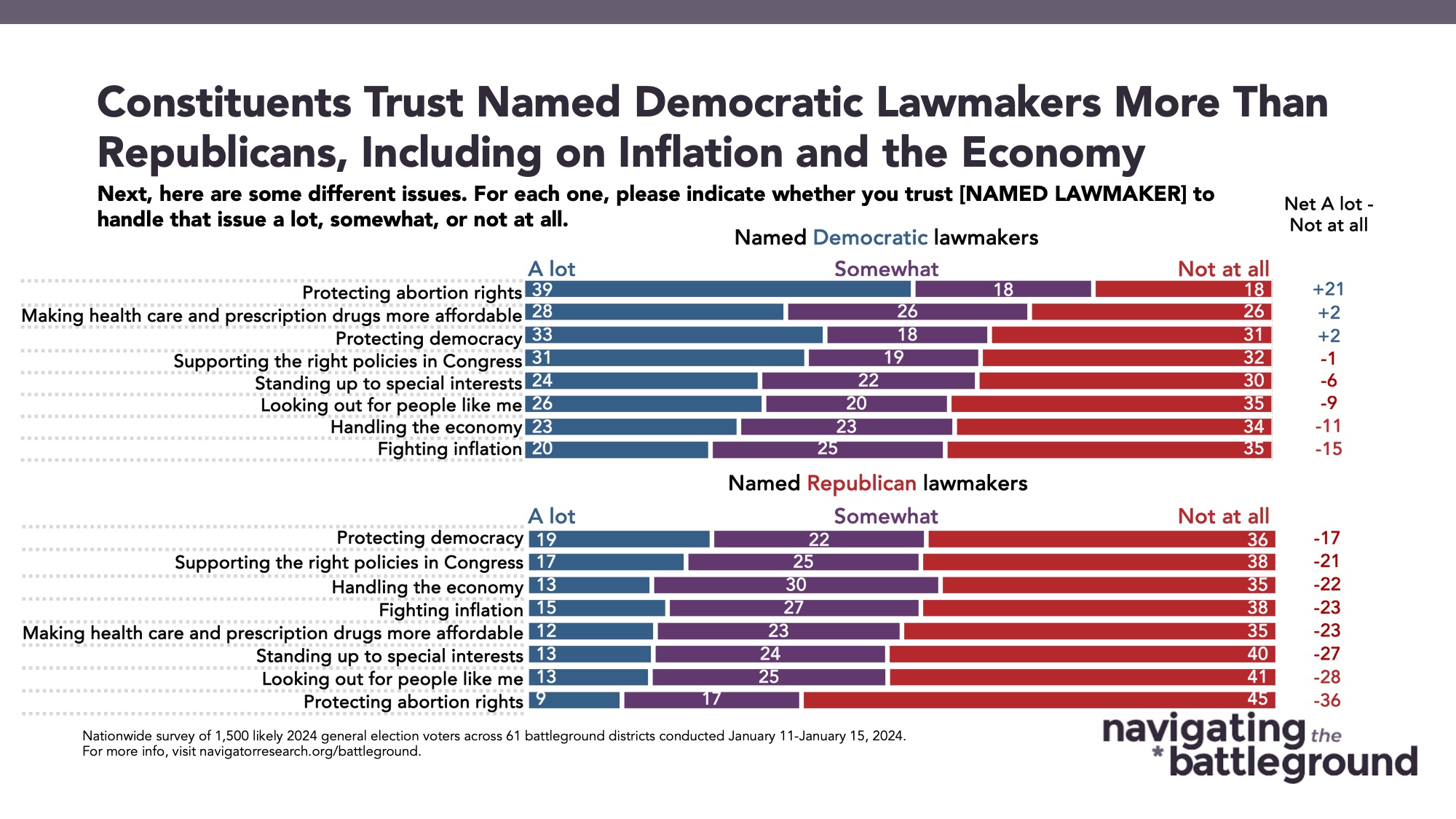Poll: Trust and Economic Landscape
This Navigating the Battleground report contains polling data on how constituents are assessing the job performance and trust of their members of Congress across party and issue areas.
Perceptions of the economy may be starting to improve, though they remain deeply negative.
While attitudes have slightly improved since our October survey, battleground constituents continue to hold deeply negative views on the economy. By 35 points, seven in ten battleground constituents rate the economy negatively (32 percent positive – 67 percent negative), a net 12-point improvement in margin from our October survey (net -47; 26 percent positive – 73 percent negative) and a net 17-point improvement dating back to last spring (net -52; 23 percent positive – 75 percent negative).
- While “inflation and the cost of living” remains the most important issue Congress should make a top priority to battleground constituents (33 percent rate it as one of their top two issues), nearly two in three in the battleground believe Republicans are more focused on non-economic issues (63 percent) than economic issues (23 percent), including 61 percent of independents who believe Republicans are focused more on non-economic issues. 63 percent of constituents also continue to believe that Republicans in Congress are prioritizing the wrong things, with only 29 percent saying they are prioritizing the right things.
Congressional Republicans continue to be less popular than Congressional Democrats.
While both Democrats and Republicans in Congress are net underwater among constituents on favorability, Republicans in Congress are more unfavorable than Democrats in Congress. Congressional Republican favorability has remained consistently low following a large drop during Mike Johnson’s speakership election last October, with three in five constituents holding unfavorable views toward Republicans in Congress (net -21; 39 percent favorable – 60 percent unfavorable). By comparison, congressional Democrats are also underwater, but less so (net -11; 43 percent favorable – 54 percent unfavorable).
- This pattern of comparative advantage extends to named legislators: Democratic legislators are viewed more favorably by their constituents than Republican legislators are viewed by constituents in their districts. Notably, Democratic legislators are viewed net positively (net +7; 41 percent favorable – 34 percent unfavorable), and Republican legislators are viewed net negatively (net -4; 36 percent favorable – 40 percent unfavorable).
- Moreover, when it comes to economic approval, while both Democratic and Republican legislators have net negative approval ratings, constituents are roughly split on how Democratic legislators are doing (net -3; 36 percent positive – 40 percent negative), while constituents in districts represented by Republican legislators are net negative about their member of Congress by double digits (net -11; 29 percent positive – 40 percent negative).
Democrats in Congress earn more trust on issues like abortion, health care, and democracy protection while Republicans in Congress are more trusted to handle the economy and fight inflation.
Among battleground constituents, Democrats are trusted more on the issues of abortion, making health care and prescription drugs more affordable, and protecting democracy, while Republicans are trusted more on handling the economy and fighting inflation. Democrats hold a 26-point trust advantage on protecting abortion rights (52 percent trust Democrats more – 26 percent trust Republicans more), an 18-point trust advantage on making health care and prescription drugs more affordable (45 percent trust Democrats more – 27 percent trust Republicans more), and a 6-point advantage on protecting democracy (44 percent trust Democrats more – 38 percent trust Republicans more). By contrast, Republicans hold a 10-point advantage on fighting inflation (32 percent trust Democrats more – 42 percent trust Republicans more) and a 9-point advantage on handling the economy (35 percent trust Democrats more – 44 percent trust Republicans more).
However, named Democratic legislators earn higher trust ratings than Republican legislators across all issue areas — including handling the economy and fighting inflation.
Democratic legislators hold the largest trust advantages on issues where Democrats are generally trusted more, including abortion (57 percent trust their Democratic representative “a lot” or “somewhat,” compared to just 26 percent who trust their Republican representative at least “somewhat”), making health care and prescription drugs more affordable (54 percent trust their Democratic representative “a lot” or “somewhat,” compared to just 35 percent who trust their Republican representative at least “somewhat”), and protecting democracy (51 percent trust their Democratic representative “a lot” or “somewhat,” compared to just 41 percent who trust their Republican representative at least “somewhat”).
- Yet, while Republicans have a general trust advantage on economic issues, Democratic legislators earn comparable to higher ratings than Republican legislators when it comes to handling the economy (46 percent trust their Democratic representative in Congress “a lot” or “somewhat,” compared to 43 percent who trust their Republican representative at least “somewhat”) and “fighting inflation” (45 percent trust their Democratic representative “a lot” or “somewhat,” compared to just 42 percent who trust their Republican representative at least “somewhat”).
About The Study
Impact Research conducted public opinion surveys among a sample of 1,500 likely 2024 general election voters from January 11-15, 2024. The survey was conducted by text-to-web (100 percent). Respondents were verified against a voter file and special care was taken to ensure the demographic composition of our sample matched that of the 61 congressional districts included in the sample across a variety of demographic variables. The margin of error for the full sample at the 95 percent level of confidence is +/- 2.5 percentage points. The margin for error for subgroups varies and is higher.

